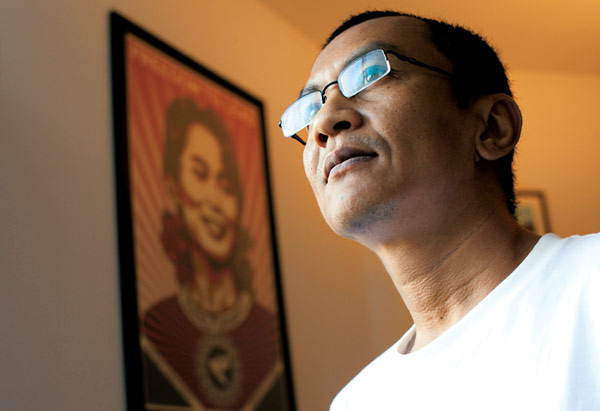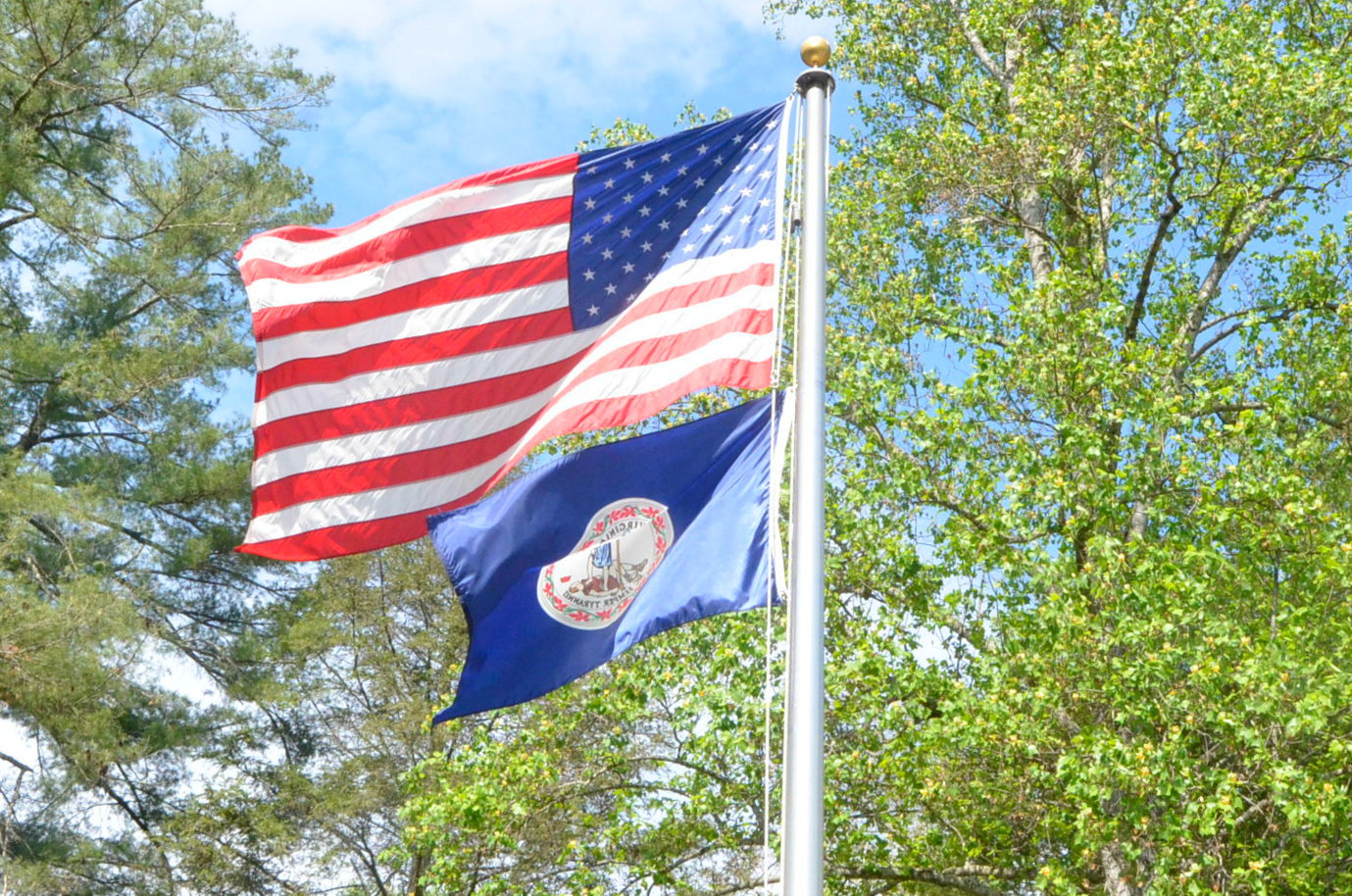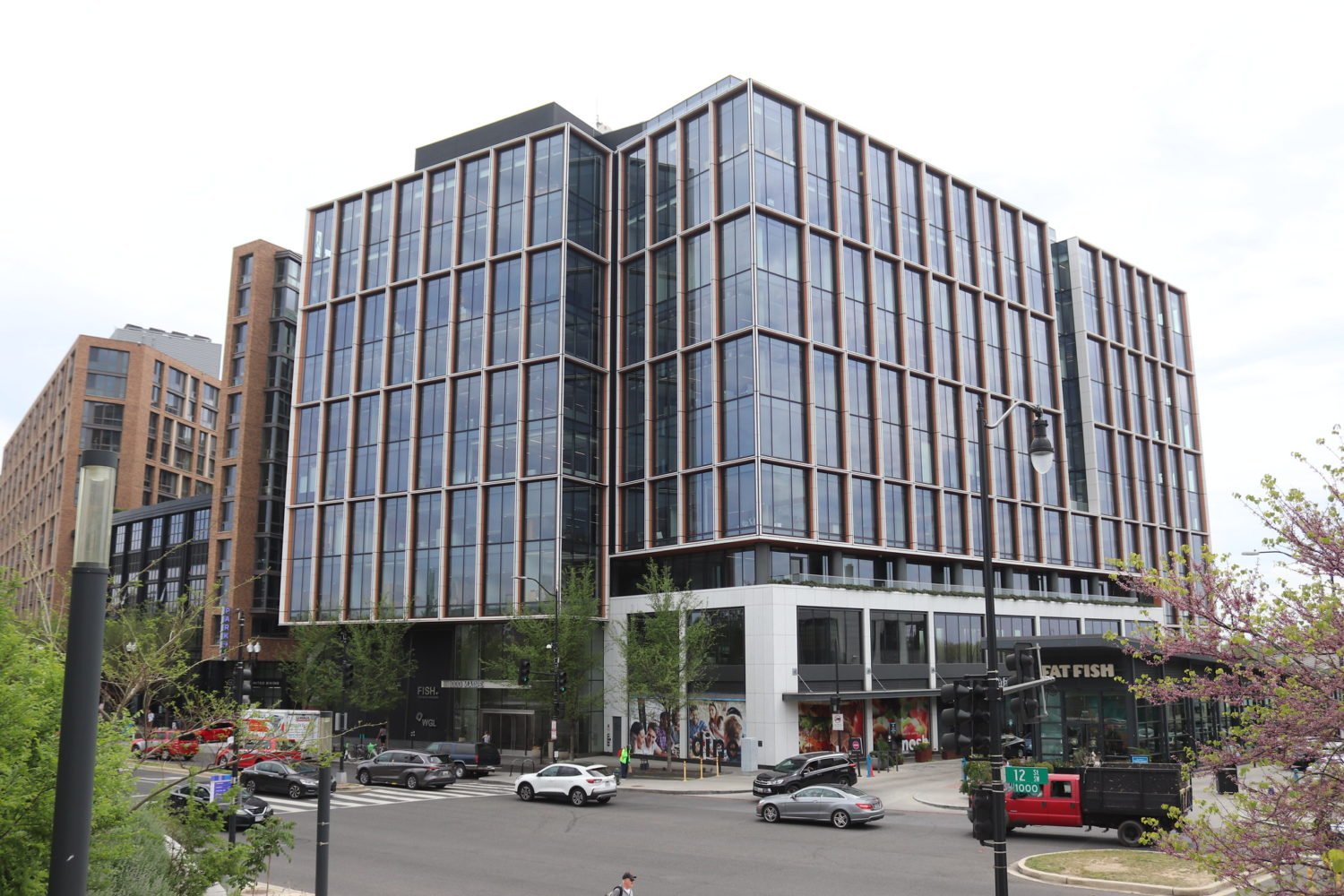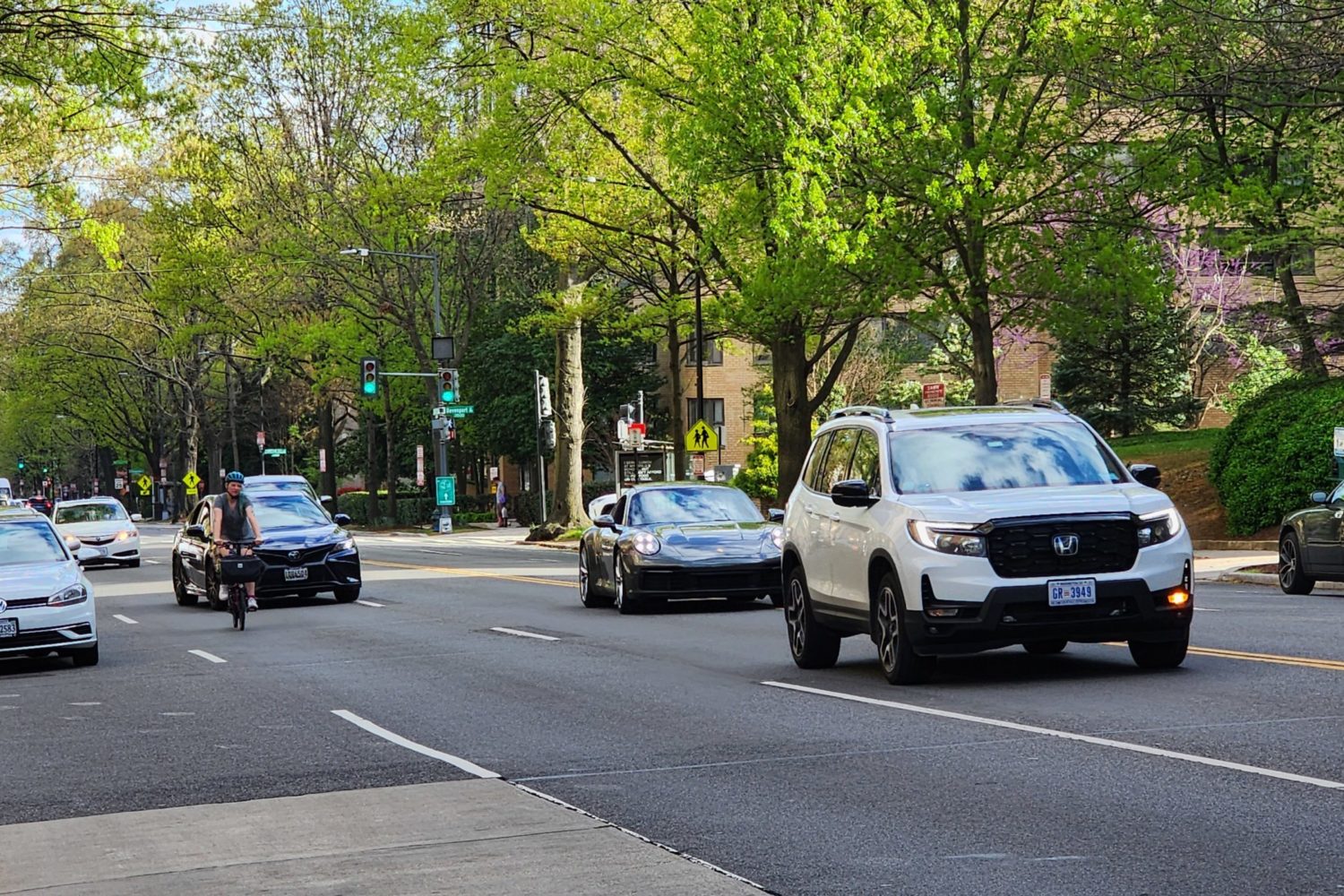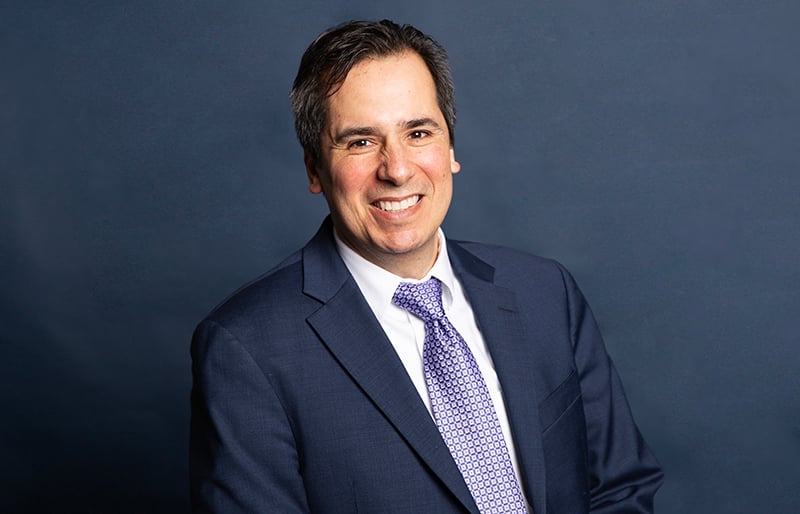Thousands of miles from his home in Gaithersburg, Nyi Nyi Aung sat in a courtroom within Insein Prison, a jail in Rangoon, Burma. He listened as the judge handed down his sentence—three years including hard labor.
Nyi Nyi felt no fear or panic, only relief. For the first time since his arrest in the Southeast Asian country five months earlier, he was certain that US authorities would soon step in and rescue him. He was the only American political prisoner in Burma, and embassy officials in Rangoon had indicated that the United States was waiting for his trial to end before taking action. Nyi Nyi returned to his cell and went to sleep.
Around 3 am, guards woke him, put shackles on his wrists and ankles, and led him onto a public bus. They didn’t tell Nyi Nyi where he was going. He felt embarrassed as the other passengers stared at him, chained up like a criminal, so he said loudly, “I am Nyi Nyi Aung. I am an American citizen and a democracy activist.” Some passengers gave him a silent thumbs-up.
But their support was of little comfort. For 6½ hours, the bus rattled and bounced along dirt roads to Prome Prison, a rural jail surrounded by rice fields. By the time the journey was over, Nyi Nyi doubted he would see his fiancée or the suburban townhouse they shared ever again.
Thousands of Americans are imprisoned abroad every year, according to the State Department, which can’t provide a precise figure because it relies on individual embassies to track arrests, many of which are never reported. While it’s easy to assume that carrying a US passport ensures a certain level of protection, when Americans travel to foreign countries, they’re at the mercy of local laws. In most arrests of citizens abroad, all that the US government will do is notify the families and provide a list of local attorneys as well as an explanation of the country’s judicial procedures.
But prisoners such as Nyi Nyi (pronounced “nee nee”) who are jailed on politically motivated charges without possibility of a fair trial stand little chance of coming home without diplomatic intervention. A few grab national attention, such as journalists Euna Lee and Laura Ling—sister of television reporter Lisa Ling—who were detained in North Korea last year. Both were employees of former Vice President Al Gore’s media company and were ultimately rescued by former President Bill Clinton.
But the families of prisoners without such high-level connections must figure out other means of raising awareness about their loved ones and making them a priority for the State Department. Luckily for Nyi Nyi, he had help in Washington.
In his office in DC’s Penn Quarter, lawyer and lobbyist Jared Genser was puzzling out the best strategy to get his client released. Though the two had never met, Genser had been engrossed in Nyi Nyi’s case for months, making phone calls, firing off e-mails, and trekking to Capitol Hill and the State Department to get officials to press the Burmese to free Nyi Nyi.
The ordeal was all too familiar to Genser. He had helped free other political prisoners in Burma as well as in China, Pakistan, Egypt, and Vietnam.
Genser’s career spans two worlds. He is a partner in the government-relations practice of the law firm DLA Piper, where the average partner takes home $1.2 million a year. But he devotes his spare time—if you can call it that—to Freedom Now, a nonprofit he founded that provides pro bono legal, public-relations, and lobbying help to political prisoners around the world.
Genser, who grew up in Montgomery County, became interested in human-rights work as a graduate student at Harvard’s Kennedy School of Government in 1997 when the Chinese president spoke at the school. Harvard announced that protesters wouldn’t be allowed on campus during the speech.
“That galled me, the idea of him traveling in his own totalitarian bubble,” Genser says. He skipped class for two weeks to help organize a protest of the tightly controlled appearance. Five thousand people showed up at the demonstration, but Genser was left wondering if it mattered. “There’s nothing wrong with yelling and screaming and waving banners,” he says, “but did that have any meaningful impact?” The experience convinced him he needed a law degree to make a real difference.
During his second year at the University of Michigan School of Law, Genser spent a semester in England, where he read about a British man, James Mawdsley, who had gone to Burma to protest human-rights abuses and ended up with a sentence of 17 years in solitary confinement. While in England, Genser contacted Mawdsley’s family.
When Genser returned to Washington that summer, he reached out to friends working on Capitol Hill, and together they got six senators and 28 members of Congress to sign a letter to the Burmese government calling for Mawdsley’s release. Back in Michigan for the fall semester, Genser received word that his efforts had paid off and Mawdsley was being let go. Genser caught a flight to London and was at Heathrow Airport to watch Mawdsley reunite with his family.
“That was the most professionally satisfying moment one could ever imagine,” Genser says. “That’s when I got hooked.”
Genser learned of Nyi Nyi’s case through Wa Wa Kyaw, Nyi Nyi’s fiancée and a hospice nurse in Rockville. She had heard of Genser because he represents Aung San Suu Kyi, Burma’s Nobel Peace Prize–winning opposition leader, who is under house arrest in that country.
Though it was hard to predict how long it would take to get Nyi Nyi freed, Genser had reason to be optimistic. In his experience, clients such as Nyi Nyi—an American citizen jailed on trumped-up charges—were supposed to be the easy ones. Convincing officials at State to push their contacts within the Burmese regime to free Nyi Nyi would be essential to keeping him from fading into obscurity among the more than 2,000 political prisoners held in the country.
A few months earlier, another American, John Yettaw, had been arrested in Burma for breaking into Aung San Suu Kyi’s home. The Vietnam veteran suffers from posttraumatic-stress disorder and had claimed he wanted to warn her of a vision he’d had in which she was assassinated. Yettaw spent three months in jail while he stood trial, but after he was sentenced, the United States secured his release. President Barack Obama and Secretary of State Hillary Clinton both made public statements about Yettaw, and Virginia senator Jim Webb escorted him home from Rangoon.
If this was how an American who committed an actual crime was treated, Genser thought, surely Nyi Nyi—who had done nothing wrong—would receive similar, if not stronger, support.
Nyi Nyi and Wa Wa thought they had left the hardest parts of their lives behind when they settled in the United States in the early 1990s. Burma—which borders India, China, and Thailand and was once part of Britain’s Indian empire—has one of the world’s worst human-rights records. The regime has imprisoned thousands for holding pro-democracy views and has beaten or killed countless others. While most Burmese people live in poverty, the military leaders who rule the country exploit its natural resources—including oil, natural gas, and copper—for their own financial gain.
As a teenager in Rangoon, Nyi Nyi became a leader of the student democracy movement. In 1988, he was arrested and jailed for a short time. He and 77 other demonstrators were crammed into a truck meant for 20 passengers and hauled to Insein Prison. Several suffocated and died during the ride.
Wa Wa also grew up in Rangoon. She wanted to be a doctor, but during her final year of medical school, in September 1988, nationwide demonstrations broke out and the military took to the streets of Rangoon to restore order. Wa Wa watched as student demonstrators were gunned down by soldiers firing from the rooftops around her.
Nyi Nyi and Wa Wa, along with thousands of other Burmese students, fled to Thailand. They met in Bangkok and became friends. In 1991, Wa Wa came to the United States and settled in Montgomery County. Nyi Nyi followed two years later. They fell in love and got engaged. Both became American citizens. Wa Wa became a nurse, and Nyi Nyi worked in IT at the US Patent and Trademark Office before returning to full-time democracy activism. Over the past decade, he has worked with a number of groups that promote democracy in Burma, helping with research and the training of student activists.
Nyi Nyi knew that traveling to Burma was risky. In 2008, during one of his trips to Rangoon to meet with other activists, military officers showed up at his hotel, presumably to arrest him. After they asked for him at the front desk, a receptionist he had befriended called his room to alert him. He escaped out a back exit.
But Nyi Nyi decided to go back to Burma on September 3 of last year to visit his mother, who has cancer and is imprisoned in a rural jail for her own democracy advocacy. He needed to see her in person to know the extent of her disease and try to make arrangements for better care. The Burmese regime was denying her medical treatment, and from 8,500 miles away in Gaithersburg, Nyi Nyi was powerless to help.
When Nyi Nyi stepped off the plane in Rangoon, he spotted two military-security officers and knew right away they were there for him. As they apprehended him, Nyi Nyi protested loudly to call attention to himself. Otherwise, he feared, he would simply vanish.
“I’m just a visitor!” Nyi Nyi yelled. “I’m an American!”
After arguing for a minute or two, the officers brought him into a private room. “You’re a good actor,” one of them said. “But we know you’re pretending.”
Nyi Nyi asked if he was being arrested, and at first the officer said no. Then a higher-ranking officer entered.
“Nyi Nyi Aung,” he said. It wasn’t a question but an accusation.
“No, that’s not me,” Nyi Nyi said.
“We know who you are. We’ve been reading your e-mails,” the officer said. “We know you’re friends with other activists and that you have colleagues who are jailed here.”
Nyi Nyi knew he couldn’t fake it. “I am Nyi Nyi Aung,” he admitted. “What’s wrong with me?”
The officers didn’t answer. They handcuffed him and covered his face with a hood, then put him in a car and drove him around for hours. He ended up at a government-run interrogation center, where he was questioned and beaten. He was held for two days and then moved to another interrogation center for 12 more days. He subsisted on coffee and slept only when he slipped into unconsciousness.
For the 12 days at the second interrogation center, he had to sit in a chair with his hands chained to a table. The military officers kicked his chair, sending him jerking back and forth so violently that they dislodged a disc in his spine. They wanted Nyi Nyi to admit he was plotting against the government.
“What are you planning?” they yelled. “Who is funding you?”
Nyi Nyi asked for a lawyer. He told his captors that he was an American citizen. He said he wanted to see the US consul—the embassy official responsible for protecting Americans in the country. For 17 days, the requests were ignored and Nyi Nyi had no way of letting Wa Wa know where he was.
Gathered on December 1 in a DLA Piper conference room with Wa Wa and Beth Schwanke, another Freedom Now lawyer, Genser laid out a plan. He asked Schwanke to manage the day-to-day tasks of the case.
Nyi Nyi faced charges that he had been carrying fake identification—though he had his US passport and a valid visa with him—and failed to declare US currency, even though he was detained before he’d had a chance to declare anything at customs. An additional charge was tacked on later for Nyi Nyi’s failure to renounce his Burmese citizenship upon becoming a US citizen—something he had never been informed was required.
The charges were an excuse to jail Nyi Nyi for his political activism, and in Burma political prisoners have a 100-percent conviction rate. It wasn’t a question of whether Nyi Nyi would be found guilty but when.
Until the trial was over, Genser’s main objective would be to raise Nyi Nyi’s profile and to convince the State Department to up the pressure on the Burmese to send Nyi Nyi home.
Talking at his typical rapid-fire pace, Genser said the first task was to set up meetings on Capitol Hill and at State to spread the word about Nyi Nyi. The group was under a time crunch because Congress was going on recess in less than three weeks. They would work the Hill to get a letter sent before then from members of Congress to the Burmese government urging Nyi Nyi’s release.
Orchestrating such a letter was a usual first step in Genser’s cases and served to put the government detaining the political prisoner on notice that American policymakers were watching. If Genser could get the right members to sign—the ones from committees with oversight authority over State—the letter could heighten the State Department’s interest. And once the letter was ready for delivery, he could circulate a copy to media outlets in the hope of generating publicity.
The group debated whether to target the Senate or House for signatures. Genser pointed out that the Senate was dealing with the health-care bill, which meant staffers on that side were preoccupied. They had a better shot, he said, at getting more signatures in a short time from the House.
At the State Department, Genser said, the key official was assistant secretary Kurt Campbell, who handles US foreign policy with countries in the Asia-Pacific region. Campbell had recently traveled to Burma, and Genser assumed Campbell had mentioned Nyi Nyi in his meetings with Burmese leaders. It was critical, Genser said, to find out from Campbell what had been said about Nyi Nyi.
With the strategy mapped out, the meeting ended on a positive note. “I am optimistic,” Genser said. “It’s just a matter of persistence. And we will persist.”
When Nyi Nyi was brought from the interrogation center to Insein Prison, he was placed in an eight-by-ten-foot cell. He heard no voices or other sounds from the surrounding cells, so he knew he was alone. His only regular interaction was with the prison guards who brought him food.
One morning, a guard came in and Nyi Nyi started talking to him. “Why do you stay here?” he asked. “Why do you wear that uniform?”
The guard answered, “I do it to feed my family.”
“There are more important things than just surviving,” Nyi Nyi said. “Survival is what animals want. But we’re humans, and we’re intelligent. We should want something more, like freedom and dignity and to do what’s right.”
The guard listened but said he was too scared to disobey the government: “I can’t lose this job. I have to keep my family safe.” After that conversation, though, the guard began sneaking Nyi Nyi extra food.
Nyi Nyi was grateful to have a toilet and running water. He remembered the time he had spent in Insein as a student demonstrator in 1988. At least things had improved since then. And he was finally allowed a visit from the US consul, who sent word to Wa Wa that Nyi Nyi was alive.
After a month, Nyi Nyi was moved to an older section of the prison, built when the British colonized Burma in the 19th century. These cells didn’t have flushing toilets, and the whole place stank.
There was one bright spot—Nyi Nyi was now surrounded by other prisoners, and he used the opportunity to tell them about his democracy efforts. Each day he spoke for at least 15 minutes about a different topic, loudly enough so he could be heard through the cell walls. And each morning he posed a new question, such as “What is the meaning of power?” and “What is the meaning of fear?” In the afternoons they would discuss their answers.
Nyi Nyi told his fellow prisoners that even though they were locked up, they could use the time productively. On December 6, he announced he was going on a hunger strike to symbolize the Burmese people’s hunger for freedom and justice. He encouraged the others to join him, if only for a few hours.
That night, guards moved him back into solitary confinement as punishment for the hunger strike, this time in a building that housed military dogs. He was locked in his cell nearly 24 hours a day, listening to constant barking.
Wa Wa often had nightmares about Nyi Nyi. In one, she dreamed he needed medical treatment and was injected with a dirty needle. She woke up in a panic and e-mailed the US consul to make sure Nyi Nyi hadn’t received any shots. The response terrified her: Nyi Nyi was on an IV glucose drip because he wasn’t eating. Wa Wa knew that doctors in Burmese prisons sometimes reused old needles, and she worried Nyi Nyi would contract HIV.
After another restless night, Wa Wa got up early to take the Metro ride from Gaithersburg to Capitol Hill. It was December 15—three days before the congressional recess—and by 9:30 Wa Wa and Schwanke were racing through the halls of the Rayburn House Office Building on the south side of the Capitol, going door-to-door to each representative’s office. The letter to the Burmese government urging Nyi Nyi’s release had been completed the day before with the help of House staffers whom Genser had recruited into the effort.
Democratic representative Howard Berman, chairman of the House Foreign Affairs Committee, and Virginia Republican representative Frank Wolf were the lead signers. Schwanke had e-mailed the letter to the 433 other representatives along with a note asking them to add their signatures. As a final effort to attract support for the letter, she and Wa Wa were on the Hill to recruit signers in person.
Genser saw Wa Wa as an important asset. In previous cases, he and other Freedom Now lawyers had had to work the Hill themselves to win over busy congressional staffers. Because Wa Wa was local, she could advocate for Nyi Nyi herself, and Genser was sure that staffers would have a harder time turning her away.
At each office, Wa Wa and Schwanke asked to speak with the representative’s foreign-policy legislative aide. In most cases, receptionists politely told Wa Wa the aides were unavailable, so she left hand-written notes.
But every so often she got lucky. At Representative Bobby Rush’s office, the foreign-policy aide couldn’t talk, but the legislative director—a higher-level staffer—could.
Wa Wa explained Nyi Nyi’s story, trying to cram every detail into the few minutes the legislative director could spare. She brought out photos of her and Nyi Nyi. One showed them vacationing in London in matching raincoats.
After reading the letter, the legislative director said he thought the congressman would be willing to sign it. It was a small victory but progress nonetheless.
Wa Wa and Schwanke visited more than 60 offices that day. Schwanke, Genser, and other volunteers made more than 800 phone calls to congressional offices before the December 18 deadline for sending the letter. Genser’s goal had been to convince 40 to 50 members to sign. The letter was sent with 53 signatures from representatives to Senior General Than Shwe, leader of the Burmese regime.
Nyi Nyi learned of the letter during a meeting with the US vice consul in Rangoon. He asked the vice consul to tell Wa Wa that he was grateful for all she was doing. He had ended his hunger strike after nine days and was no longer receiving the IV drip, but he was on antibiotics for an insect bite.
Though the Burmese often denied Nyi Nyi access to the consul and vice consul for weeks at a time, when they could visit they gave Wa Wa immediate updates on Nyi Nyi’s condition. They also provided Nyi Nyi with small comforts such as reading materials.
But that was about all the consular officials could do. And though Genser was pleased with their work, what he really wanted was for State’s main office in Foggy Bottom to up the political pressure on the Burmese.
Genser e-mailed assistant secretary of State Kurt Campbell to request a meeting. The response from Campbell’s assistant came three days later: “Kurt Campbell has a very tight schedule, and he prefers that Consular Affairs handle this matter.”
The brush-off infuriated Genser. “This was not a simple case of an American who got themselves in trouble in a foreign land and needed consular services,” he says. “This was a case where a person was wrongfully imprisoned and wrongfully accused and would be wrongfully convicted and sentenced for something they actually didn’t do. And you needed political engagement in order to spring that person out of that situation.”
Genser knew it was important to maintain a civil dialogue with State. Still, his anger came through in the e-mail he sent back to Campbell’s office. He noted that Republican and Democratic staffers with an interest in the case had kept him apprised of their briefings with the State Department, and they were unhappy with the lack of attention on Nyi Nyi.
Genser mentioned State’s handling of the other American recently jailed in Burma, John Yettaw, who had been arrested for breaking into Aung San Suu Kyi’s house. Genser noted that his contacts on the Hill were concerned that a white American who had actually broken the law had received higher-level attention than a Burmese-American imprisoned on political charges.
The implication of the e-mail was clear: State made the white guy a priority but wouldn’t do the same for the guy who looked foreign. Campbell, along with deputy assistant secretary for Southeast Asia Scot Marciel, agreed to meet with Genser, Schwanke, and Wa Wa on January 5.
By that time, Nyi Nyi had been detained for four months and the State Department still had not publicly called for his release. One House staffer, speaking anonymously because of the private nature of the State Department’s Hill briefings, says he felt “despair and dismay” after being updated by deputy assistant secretary Marciel on State’s low-key approach to Nyi Nyi’s case. Hill staffers also believed that Nyi Nyi’s treatment qualified as torture, whereas the State Department referred to it as “mistreatment.”
Assistant secretary Campbell declined to be interviewed for this story. Another senior State Department official who spoke on the condition of anonymity says State didn’t believe the Burmese would respond well to loud public statements about Nyi Nyi. “It was just our considered judgment that we had some prospect of getting him out through quiet diplomacy,” he says. That included low-level communication between the US Embassy in Burma and Burmese diplomatic officials in Rangoon and Washington.
The senior official says State didn’t believe the Burmese ever intended to detain Yettaw for long, making it less risky for Secretary Clinton to call for his release. In Nyi Nyi’s case, the official says, State felt the Burmese regime viewed him as Burmese, not American, and thus intended to hold him longer. State was concerned, says the senior official, that issuing a public statement would only “harden the Burmese position.”
The meeting on January 5 revealed another detail that troubled Genser.
Since Nyi Nyi’s arrest, assistant secretary Campbell and deputy assistant secretary Marciel had met with Burmese government officials in person twice—once in New York and once in the Burmese city of Nay Pyi Taw. The discussions were part of the United States’ new policy—announced in September, the month Nyi Nyi was arrested—of holding direct dialogue with Burma rather than relying solely on sanctions to spur reform. Stated goals of the new policy include improving the human-rights situation and encouraging democracy in Burma as well as holding the regime to its nonproliferation commitment amid concerns that the country is forming a military relationship with North Korea.
In a dinner conversation during the trip to Nay Pyi Taw, Marciel mentioned Nyi Nyi to the Burmese deputy foreign minister. But Campbell and Marciel didn’t raise Nyi Nyi’s case during the official meetings between the governments on either trip.
The senior State Department official says the talks, which were focused on “the broader relationship” between the two countries, were “extremely difficult and not very harmonious,” so Campbell and Marciel decided that addressing Nyi Nyi’s detention at dinner would be more useful.
Genser wasn’t satisfied with that explanation. “Do I think Nyi Nyi’s case should’ve been a central point of US-Burmese negotiations? Of course not,” he says. “But the fact that there was only one American there being wrongfully imprisoned and tortured deserved at least—as Campbell was walking out the door of his meetings—saying, ‘We’re focused on this American, and this is a serious problem for us.’ ”
A couple of weeks later, on January 22, Nyi Nyi’s trial concluded. Now it was a matter of waiting to be sentenced. Conditions in the prison had gotten worse. Nyi Nyi’s aunts, who live in Rangoon, had previously been able to visit, but guards told him he was no longer allowed to see family.
Genser believed the window of time before Nyi Nyi’s sentencing was the moment for Secretary Clinton to speak up and demand that Burma send Nyi Nyi back. Genser didn’t care if Clinton chose to do this publicly. Private communication between Clinton and high-ranking Burmese officials would also do.
The State Department had elevated Nyi Nyi’s case somewhat. Assistant secretary Campbell had sent a message about Nyi Nyi to an official within the Burmese military leader’s inner circle. But Campbell is three levels below the Secretary of State, and Genser didn’t think a message from him sent a strong enough signal. Again, he looked to Capitol Hill to put the pressure on Secretary Clinton to call for Nyi Nyi’s release, as she had for other Americans jailed abroad.
He provided senators’ and representatives’ staffs with a detailed legal analysis of the case against Nyi Nyi. As a result, several lawmakers—including Nyi Nyi’s congressman, Chris Van Hollen, and Maryland senator Ben Cardin—were persuaded to send personal letters to Clinton. Genser had high hopes for a letter from a pair of influential legislators—Massachusetts senator John Kerry, chairman of the Senate Foreign Relations Committee, and Representative Berman, chairman of House Foreign Affairs. Their committees oversee all foreign-affairs issues, including authorization of the State Department’s budget.
The letter conveyed their concern that State’s current approach “may nevertheless be insufficient to demonstrate that securing the release of [Nyi Nyi Aung] is a high U.S. Government priority,” and encouraged Clinton’s “direct, personal involvement.”
But Clinton never got involved publicly or privately. A little past midnight on February 10, the US vice consul called Wa Wa to tell her that Nyi Nyi had been sentenced. Wa Wa called Schwanke, who then told Genser. A couple of days later, they got worse news. Nyi Nyi’s aunts in Rangoon had learned from officials at Insein that Nyi Nyi was no longer being held there. The Burmese had transferred him, without notifying the US government, from Insein to the rural Prome Prison. Upon learning this, Genser filed a petition with the United Nations.
Despite this setback, according to the senior State Department official who spoke anonymously about the case, around this time State was becoming more convinced that its strategy of quiet diplomacy was working. The official says that a week after Nyi Nyi’s conviction, the Burmese asked the State Department to send what’s known as a diplomatic note through the US embassy in Rangoon to the Burmese Foreign Ministry. Such notes are a diplomatic tool used to make formal requests between governments. The Burmese asked that the note contain a request for Nyi Nyi’s release and deportation.
The State Department official says that because the Burmese are very opaque about their intentions, State wasn’t entirely sure why they wanted the diplomatic note or what the outcome would be. “This is not a normal relationship that we have with this government,” he says. “We have limited contacts. They generally don’t share information. It wasn’t that we were superbly confident that everything was fine, but we had a pretty good sense that some people in their government saw it in their country’s interest to release him.”
Nyi Nyi, however, was no longer feeling anything close to hopeful. Prome Prison was a bleak place. He was in one of seven solitary-confinement cells, with a plastic bowl as his bathroom and the wooden floor as his bed.
Nyi Nyi knew that American prisoners were not typically moved from Insein. He was no longer sure if the US government would ever intervene, or even if anyone knew where he was, because he had been denied consular access since arriving at Prome. He was cut off from the world beyond his cell.
Genser decided it was time to take the fight public. On February 22, the Wall Street Journal published a scathing op-ed written by Wa Wa admonishing both Secretary Clinton and President Obama for their silence about Nyi Nyi’s torture and detention.
“When we became Americans, Nyi Nyi and I took an oath to ‘support and defend the Constitution and laws of the United States of America against all enemies, foreign and domestic,’ ” she wrote. “And yet, to the U.S. government, [Nyi Nyi] might as well just be one of the other 2,100 political prisoners languishing in a Burmese prison.”
A few days later, Genser, Schwanke, and Wa Wa headed to NPR on DC’s New York Avenue to tape an interview about Nyi Nyi with Tell Me More host Michel Martin. Genser fielded most of the questions, taking aim at State. He brought up the higher level of attention given to Yettaw. Martin took the bait, asking Genser if he really believed that Nyi Nyi’s Burmese origins made him less of a priority.
“The State Department would strongly and vigorously deny that,” Genser answered, “but I have yet to have a good explanation as to why the disparate treatment.”
On the same day as the NPR interview, Genser and Wa Wa met again with assistant secretary Campbell and deputy assistant secretary Marciel along with a few others at State. The officials had agreed to the meeting after hearing that Wa Wa’s Wall Street Journal op-ed was coming out.
According to Genser and Wa Wa, Campbell was furious about the article. “It was totally inappropriate to me,” says Wa Wa of Campbell’s behavior in the meeting. “He didn’t even ask how I was doing.”
Genser and Wa Wa told him they wouldn’t have slammed the State Department if they had been kept informed about what was happening with Nyi Nyi’s case. “It was the lack of communication,” Wa Wa says. “After the last meeting [on January 5], there was no communication. They didn’t tell us anything.”
Genser says that when he asked Campbell why his e-mails and calls about Nyi Nyi hadn’t been returned, he was told it was because he couldn’t be trusted with sensitive information. “Bullshit,” Genser says. “All I needed was a simple response to an e-mail that just said, ‘Trust us, something is happening.’ ”
The senior State Department official, speaking anonymously, says he doesn’t want “to get into characterizing what people said” in the meeting, but he doesn’t deny Wa Wa’s and Genser’s versions: “What I would say is there was a difference of views on the tactics.”
But the meeting did yield promising news. The State Department officials said they were getting what seemed to be encouraging feedback from the Burmese regime. They asked Genser and Wa Wa to hold off on public discussion of the case for four weeks. They aimed to have Nyi Nyi home by then.
Genser agreed to halt his efforts, but not for a day longer than those four weeks.
The prison guards entered Nyi Nyi’s cell on March 17, shackled his wrists and ankles, and brought him onto the same public bus that had delivered him to Prome more than a month earlier. Nyi Nyi’s right leg was in terrible pain. He thought maybe he was being taken back to Rangoon to see a doctor.
When he arrived at Insein Prison hours later, he was put back into solitary confinement, where he spent the night. The next morning, one of the prison officers came in and told him to get showered because he was leaving—not to see a physical therapist but to get on a plane to the United States.
Despite the relief and joy of the moment, Nyi Nyi’s thoughts wandered to his mother, whom he had never gotten to see, and to the other prisoners he was leaving behind. He knew that their suffering would continue.
But for Nyi Nyi, more than six months after the nightmare began, it was over. On March 19, Wa Wa, Genser, and Schwanke went to Dulles to meet him. Several family friends as well as a group of reporters who’d been notified by Genser and Schwanke showed up outside international arrivals. Bystanders wondered aloud if someone famous was coming.
Wa Wa looked like the sun had come up for the first time in ages. Months of worry had melted off her face, and the black pantsuit that had become her uniform for Hill meetings and interviews was gone. In its place was a bright-blue cardigan over a lacy white top.
Nyi Nyi’s flight was expected to arrive at 3:30, and everyone’s eyes were fixed on the announcement board that would show when United Flight 898 from Tokyo had landed. Finally, a low echo of “It’s up” moved through the crowd. Nyi Nyi was on the ground.
Wa Wa pressed herself against the low barrier separating the waiting area from arrivals, trying to get a glimpse of Nyi Nyi. When he rounded the corner, the crowd erupted.
He spotted Wa Wa and moved toward her, a bad limp keeping him from running. They grabbed each other in a long embrace. A few feet away, Schwanke attempted to snap photos as tears streamed down her face.
When Nyi Nyi and Wa Wa turned toward the reporters, Nyi Nyi’s physical condition became more apparent. He weighed barely 100 pounds, and his dark-gray polo shirt and khaki pants drooped off his thin frame. Wa Wa held onto him tightly, not only because she was happy to have him close but also to help steady his shaking body.
For all his work on the case, Genser will likely never be able to say for certain what finally brought Nyi Nyi home. But he can speculate. In part, he and other observers in the human-rights community say, it was probably a matter of lucky timing. Days before Nyi Nyi was let go, the Burmese regime announced a harsh new election law that drew intense international criticism. Freeing the only American political prisoner may have simply been an attempt to deflect some of the heat.
But Genser is also convinced that the State Department’s approach changed within the weeks immediately leading up to Nyi Nyi’s release. At that second contentious meeting at State, Genser says, assistant secretary Campbell made it clear that the engagement with the Burmese had intensified only recently. “Up until that point, we had no indication of what State was doing,” Genser says.
He doesn’t believe that State ever really thought the approach of low-level, quiet diplomacy was in Nyi Nyi’s interest: “If that’s true, that’s naive and stupid. And if there’s one thing I’ll say about Kurt Campbell, it’s that he’s a smart guy.”
Rather, Genser believes State was trying to hold off jeopardizing the broader goals of its new engagement policy with the Burmese by pushing them too hard on Nyi Nyi.
On a spring day at home with Wa Wa, Nyi Nyi says he believes Wa Wa’s op-ed is what finally did it. The day he was freed, he remembers, the US consul told him that the State Department had recently made “a top, high-level request” for his release. Nyi Nyi believes the State Department waited to make such a request until Wa Wa had spoken out.
His anger is palpable. “I have a question,” he says. “Why didn’t the US do that earlier? Because I’m not born here?”
The State Department tells a different story. The senior official says he isn’t aware of any last-minute high-level requests, explaining that Nyi Nyi’s release was “the culmination of a multiple-weeks—even months—diplomatic effort.” Asked if State should have handled Nyi Nyi’s case differently, the official says, “I actually think we did a very good job and got this guy out.”
Nyi Nyi didn’t contract any diseases in prison, though a couple of months after his release he underwent spinal surgery. The leg pain was caused by a herniated disc in his back—the result of the abuse he took in the interrogation centers in September of last year. Doctors said Nyi Nyi could have been paralyzed if he had gone much longer without treatment.
Though he’s happy to have his freedom back, Nyi Nyi isn’t satisfied. He says his democracy work is more important than ever: “Now that I’m released, I have more responsibility. I really wish for all people to be free together.”
And just a few months after returning home, Nyi Nyi is back at it. During a meet-and-greet with his representative, Chris Van Hollen, to thank him for advocating on his behalf, Nyi Nyi brings up the others still languishing in Burmese jails. Nyi Nyi asks the congressman if he’ll help push for his sick mother’s release.
“Well,” says Van Hollen, “let’s work with you on that now.”
This article first appeared in the October 2010 issue of The Washingtonian.

